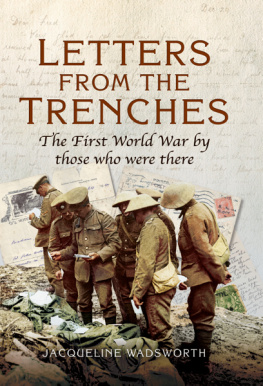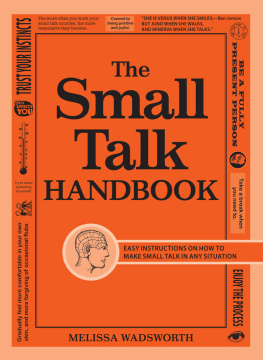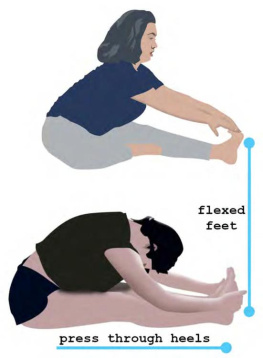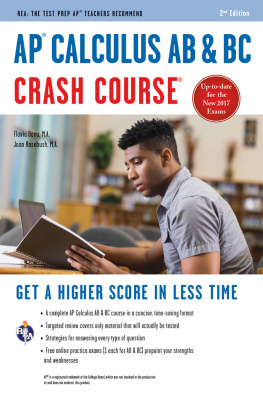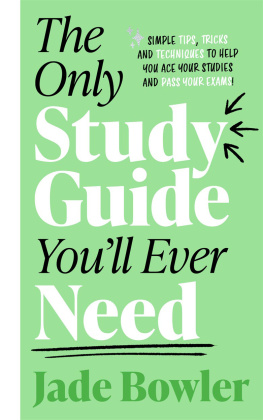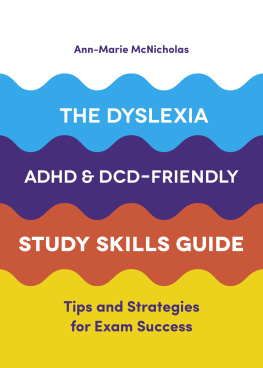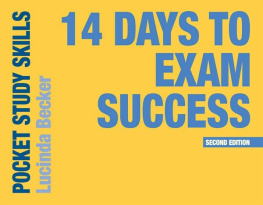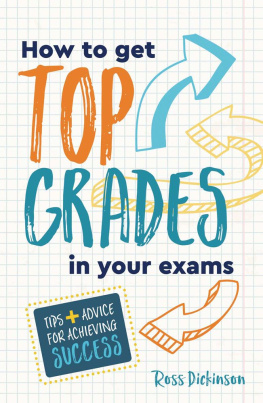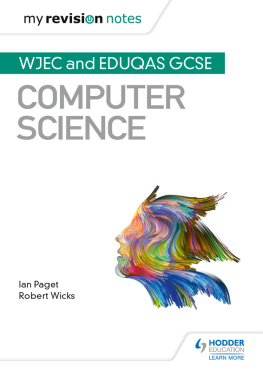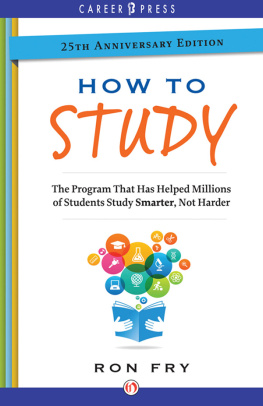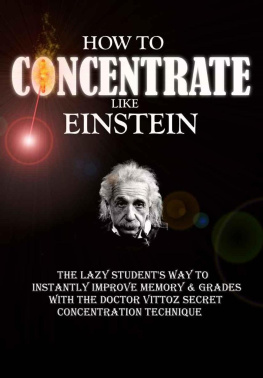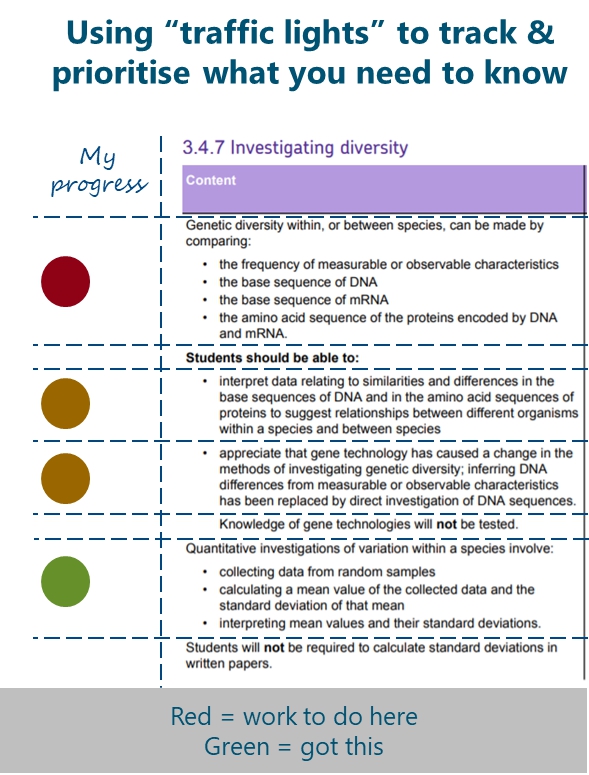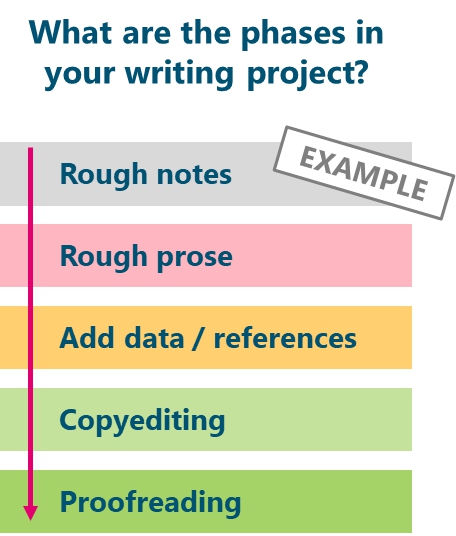OUTSMART
YOUR STUDIES
How To Study Effectively,
Hack Your Memory,
& Learn Faster
William Wadsworth
Copyright 2022 William Wadsworth.
All rights reserved. No part of this book may be reproduced, stored in a retrieval system, or transmitted in any form or by any means, electronic, mechanical, photocopying, recording, or otherwise, without express written permission from the publisher.
ISBN: 9798781744688
Cover design by: Rebecca Pitt and Crucible Creative
Edited by: Luna Beasley
Contents
Introduction
Welcome to Outsmart Your Studies, the book that teaches time-strapped students how to study more effectively for their exams, so you can:
Learn faster and remember more
Prepare for exams without the overwork and stress
Get the grades you want and deserve on test day
These exams youre working towards could be standardised tests at (high) school, exams as part of your university or college course, or even qualifications taken as part of your career. It really doesnt matter the strategies for effective studying are the same.
If you have stuff to learn for your exams, if you want to do well, and if you want an easier path to getting there, then this is the book for you!
* * * * * * *
The first part of this book covers the foundations: the Six Pillars of Student Success, introducing principles the rest of the book will focus on:
Pillar 1 Know Where Youre Going: have a plan
Pillar 2 Know You Can Get There: master your mindset
Pillar 3 Make Time for the Journey: building a solid study routine
Pillar 4 Eyes on the Road: cultivating unshakeable focus
Pillar 5 Learn Faster by Retrieving: how to get knowledge to stick in memory fast
Pillar 6 Remember for Longer by Spacing: the secret to beating forgetting
Part 2 covers the Six Study Strategies That Work. Its not necessary to use all these strategies most students get great results by focusing on just one, two, or three. You can read this part in order, but its also possible to dip into specific strategies that appeal to you the most.
Strategy 1 Powerful Learning Using the Blank Paper Technique
Strategy 2 Supercharge Your Memory with Flashcard Mastery
Strategy 3 Q&A Ultranotes: How to Make Notes You Can Actually Remember
Strategy 4 Getting Creative with Practice Questions & Past Papers
Strategy 5 Hack Your Memory with Study-Ready Mnemonic Tricks
Strategy 6 Get Test-Ready for Maths (& More) with Interleaving
To finish, Putting It All Together explains how you can use the various strategies in combination to build a complete and coherent study system.
A smarter path to exam success awaits!
Part 1. How to Study Effectively: The Six Pillars of Student Success
Lessons from science and psychology to set you up for exam success
Pillar 1: Know Where Youre Going
First things first: what do you actually need to do to succeed in your exams?
Before anything else, you need to be clear on whats expected of you.
Tracking your learning across different topics
Have a list of topics/subtopics, and consider a simple tracking system so you can see at-a-glance which topics need more work.
A traffic light system can work great for this: red for needs work, amber for getting there, and green for got this.
Start with the red topics, and once youre done, move on to amber.
Tracking your progress in written assignments
If youre working towards a big writing assignment, like a dissertation, thesis, or research project, start by thrashing out the big building blocks of the task first.
That could be by content area: what different sub-topics do you need to work on as part of your overall assignment?
Alternatively, you could plan the project by work phase, with new reading first, then planning, writing-up, and proofreading.
Matching your studies to the time available
Once youve made your map for what needs doing in your studying, do a quick time budget for it. For example, if there are 11 chapters to study and you have 25 days before the test, thats 1 chapter every 2 days, with a few days to spare.
Does that feel realistic?
If not, how can you prioritise or scale back your ambitions to make the task fit into the time available?
Dont make your study plan too detailed youre looking for a birds-eye view of the road ahead, not a minute-by-minute timetable for every moment.
What does good look like?
I would also advise looking down the road ahead a little.
As a good example, if youre learning for tests and exams, most students spend time learning a topic, then start looking at past paper questions.
Flip that on its head, and youll get better results.
Start by looking at real exam questions for that topic maybe even attempting a few, making educated guesses wherever you need to.
Then, when you go back and revise the topic, youll have a much deeper sense of what you need to know and why and how youll apply it in the exam. That will help the topic go in much better a bit like a farmer ploughing his field before sowing crops.
But what if youre working on a project or assignment?
Well, this idea about looking ahead might stretch to finding out what you can about whats expected of you in the assignment look at how theyre marked, if you can, and maybe seek out any examples of what good looks like.
Perhaps some past student projects are available in the library, or your tutors have made some model essays available. The more you understand about what the assessors want to see, the easier it will be for you to deliver.
Pillar 2: Know You Can Get There
Some study advisors recommend setting goals about what you want to achieve in your exams.
Thats all well and good, but I want you to go a level deeper and decide what kind of student you want to be.
Will you settle for mediocre?
Or will you make the decision to identify as a high-performing student?
Theres a magic in deciding to act like a high-performer because youll behave accordingly.
That might only mean a small tweak to your habits each day, like working three hours instead of two and using retrieval practice techniques (see Pillar 5), not just re-reading.
Small changes sustained each day over weeks and months add up to a massive difference in the end result.
What if you struggle to associate with that new high-performer identity today?
Then PRETEND.
Ask yourself: what would a high performer do in this situation? How would they tackle this assignment or tricky exam question?
Act accordingly.
With a bit of practise and time, youll soon realise you no longer need to pretend you ARE the high performer youve been pretending to be all this time.


